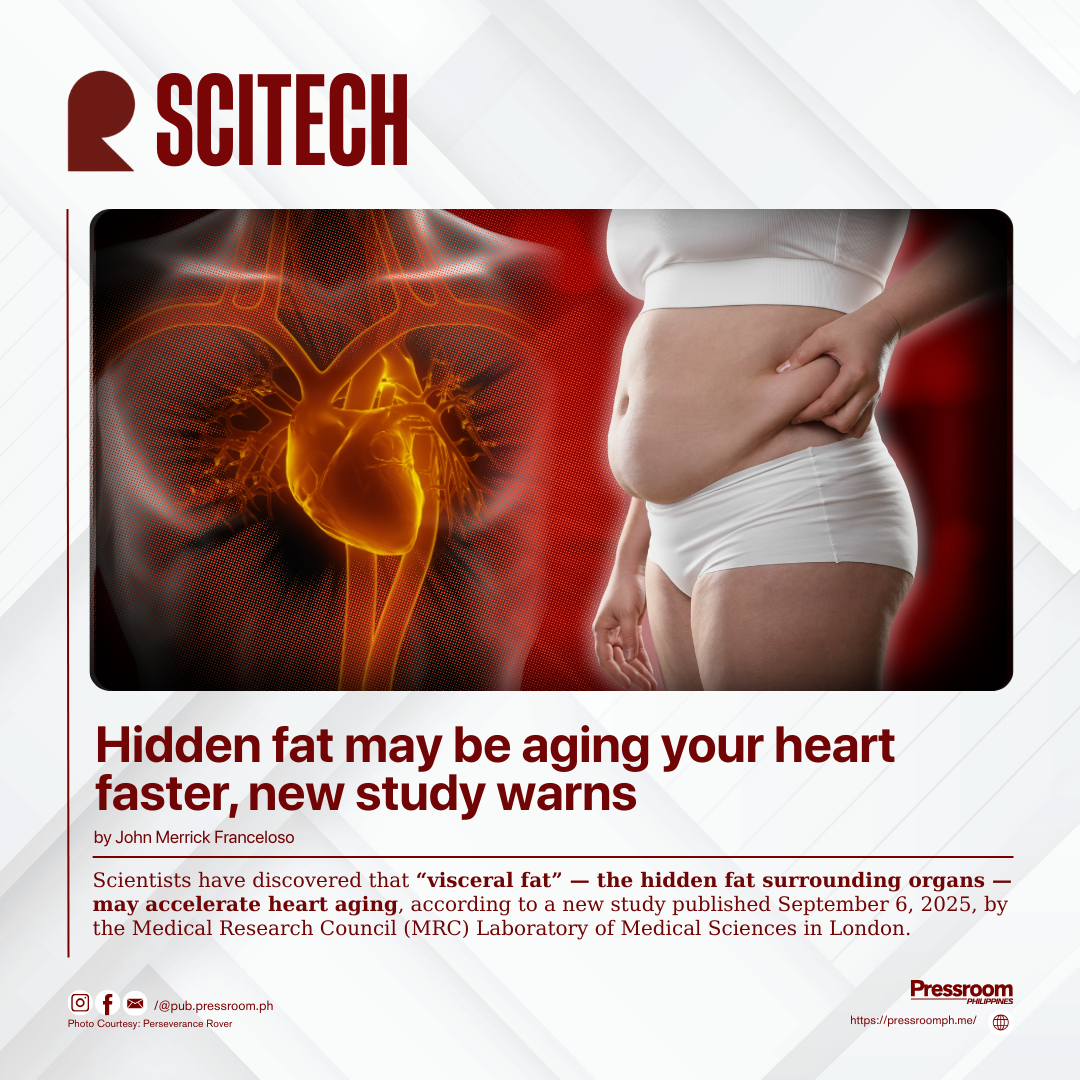Scientists have discovered that visceral fat — the hidden fat surrounding organs — may accelerate heart aging, according to a new study published September 6, 2025, by the Medical Research Council (MRC) Laboratory of Medical Sciences in London.
The research was conducted by a team from MRC and Imperial College London, using data from 21,241 participants in the UK Biobank.
Researchers used artificial intelligence to analyze whole-body and heart imaging, assigning participants a “heart age” that reflects how fast their hearts were aging compared to their actual age.
They found that individuals with higher levels of visceral adipose tissue had stiffer, more inflamed heart tissue, suggesting premature cardiovascular aging.
Professor Declan O'Regan, lead researcher, explained: “Our research shows that ‘bad’ fat, hidden deep around the organs, accelerates aging of the heart — but some types of fat, like fat around the hips and thighs in women, could actually protect against aging.”
The study also revealed that body mass index (BMI) is a poor predictor of heart age, underscoring the importance of fat distribution rather than total weight.
Interestingly, fat stored around hips and thighs, often seen in women, was linked to slower heart aging, with higher oestrogen levels appearing to play a protective role.
Professor Bryan Williams OBE, chief scientific and medical officer at the British Heart Foundation, said: “It is concerning that visceral fat could also help to speed up aging of the heart and blood vessels — making it a target for future therapies.”
The findings raise questions about prevention, as researchers noted that exercise and fitness alone may not eliminate hidden visceral fat.
According to O'Regan, future research will explore drug therapies such as GLP-1 inhibitors, including Ozempic, to see if they can reverse the aging effects of visceral fat.






